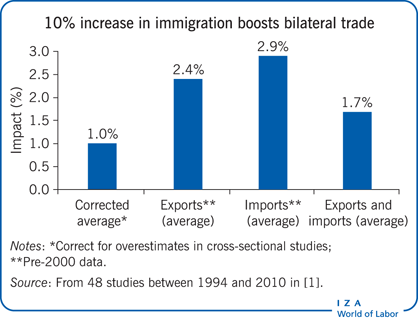ConsumerSpending
Migration’s Economic Influence: Balancing Impact and Policy

Migration’s Economic Influence: Balancing Impact and Policy
Immigration plays a crucial role in shaping the economic landscape of nations, presenting both opportunities and challenges. In this exploration, we delve into the multifaceted impact of immigration on the economy and the importance of well-crafted policies to harness its benefits.
Contributions to Economic Growth
Immigrants contribute significantly to economic growth by bringing diverse skills, talents, and perspectives to the workforce. Their participation in various sectors, from technology to healthcare, fosters innovation and enhances productivity. A robust immigrant workforce often acts as a catalyst for economic expansion, driving industries forward and creating new opportunities.
Labor Market Dynamics and Job Creation
One of the key impacts of immigration on the economy is its influence on the labor market. Immigrant workers fill gaps in industries facing labor shortages, ensuring the smooth functioning of critical sectors. Moreover, their presence often complements the skills of the native workforce, leading to job creation rather than job displacement. This collaborative dynamic strengthens the overall labor market.
Entrepreneurship and Small Business Growth
Immigrants frequently play a pivotal role in entrepreneurship and small business growth. Many successful businesses are founded by immigrants, contributing to economic dynamism and job creation. Their entrepreneurial spirit not only enhances local economies but also diversifies business landscapes, fostering a more resilient and competitive economic environment.
Consumer Spending and Economic Stimulus
Immigrants contribute to consumer spending, driving demand for goods and services. As they integrate into communities, they become consumers themselves, supporting local businesses and contributing to economic stimulus. This cycle of increased spending has a ripple effect, positively impacting various sectors of the economy and promoting overall economic health.
Fiscal Contributions and Social Welfare
Contrary to some misconceptions, immigrants often make substantial fiscal contributions. They pay taxes, including income, property, and sales taxes, which contribute to public coffers. Studies indicate that, over time, immigrants tend to be net positive contributors to government finances. Responsible immigration policies can ensure that the fiscal benefits are maximized.
Challenges in Wage Dynamics and Low-Skilled Jobs
While immigration brings numerous benefits, it also poses challenges, particularly in wage dynamics and low-skilled job markets. In some cases, an influx of low-skilled immigrants can lead to wage suppression in certain sectors. Balancing the needs of the workforce and addressing potential disparities are crucial aspects of effective immigration policies.
Education and Skill-Level Considerations
A nuanced approach to immigration policies should consider education and skill levels. High-skilled immigrants often contribute to technological advancements and innovation, filling critical roles in STEM fields. Policies that attract and retain skilled professionals ensure that nations remain competitive in the global knowledge economy.
Social Integration and Cultural Diversity
Beyond economic impacts, immigration influences social dynamics and cultural diversity. Successful integration policies foster social cohesion, enriching societies with diverse perspectives and experiences. Embracing cultural diversity not only enhances the quality of life but also contributes to the overall vitality and resilience of communities.
Addressing Challenges Through Policy Reforms
To explore innovative solutions at the intersection of the Impact of Immigration on
